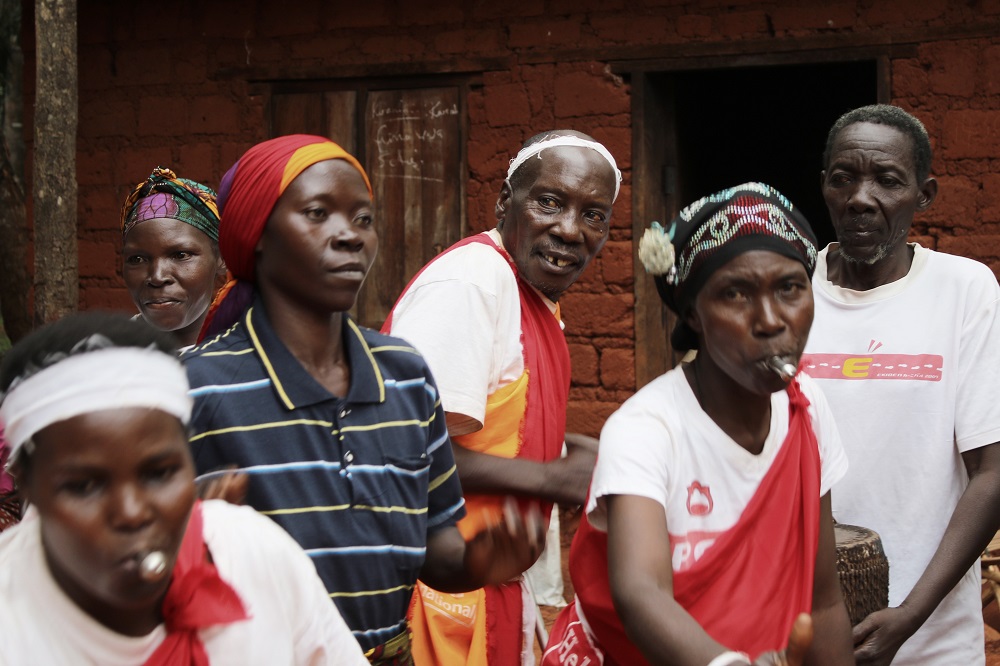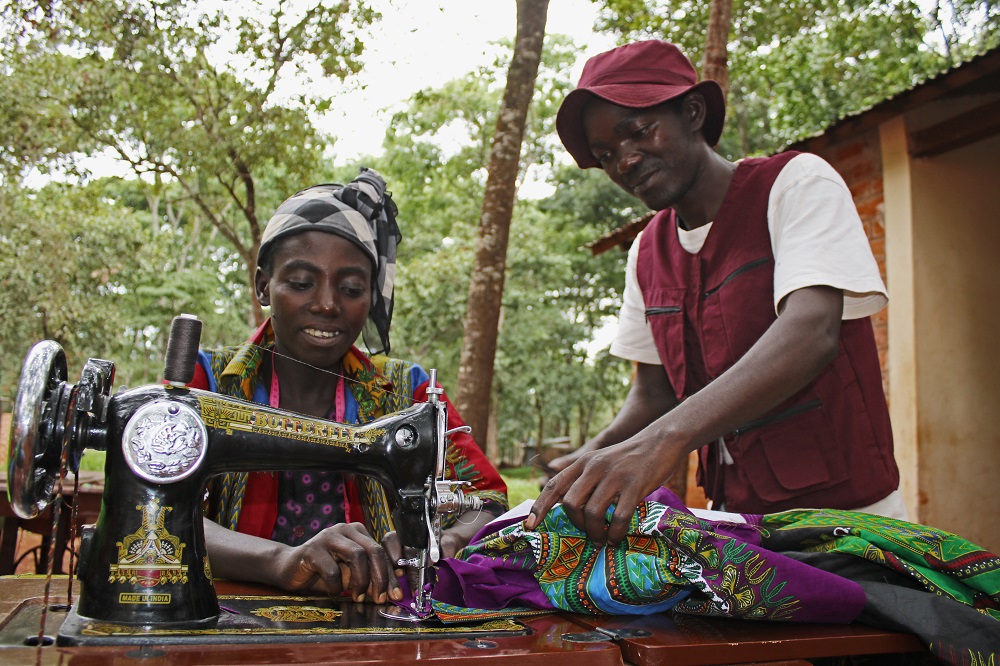In April 2015, Burundi President Pierre Nkurunziza announced he would seek a third term in office. Protests erupted in the capital Bujumbura, ignited by those who questioned the legality of the move. The ruling party and its youth wing, the Imbonerakure, has attacked, tortured and killed opponents and perceived opponents, and extorted money from businesses and civilians, according to Human Rights Watch.
This political violence and abuse of human rights has forced some 406,000 Burundians to flee the country to neighbouring states, with more than half crossing the border to Tanzania.
Refugees settle in three overstretched camps in the north-west of the country on the Burundi border where they face poor, crowded conditions. The atmosphere remains calm in these settlements, but the continued persecution of those seen as opposed to the establishment in Burundi has ensured a continued flow of migrants into Tanzania.
What is HelpAge doing?
HelpAge International is providing support to older men and women, and other groups who have specific needs or are at greater risk in the camp, such as people with disabilities, single women who head households, and those with chronic health conditions.
We have reached out to more than 14,000 vulnerable people directly in two of the three camps – Mtendeli and Nduta – to help improve their lives in Tanzania:
- Our social workers visit people’s homes to address issues such as lost ration cards, witchcraft accusations and domestic violence, as well as provide care.
- More than 4,250 people have received unconditional, one-off cash payments.
- Nearly 5,000 people now have priority access to food rations, and we help over 1,000 people every month to get to the distribution points and transported their supplies home.
- More than 4,500 people have received mattresses, soap, mosquito nets and sweaters.
- We built a gymnasium where refugees with disabilities, injuries or other physical challenges can exercise and receive physiotherapy.
- Refugees in the camps are securing incomes through our livelihoods support, which includes providing training, materials and equipment to enable them to build furniture, tailor clothes and make baskets.
- Through our Age and Disability Capacity Building (ADCAP) programme, we trained staff of various agencies responding to the emergency to ensure they meet the minimum standards for inclusion of older men and women, and people with disabilities.
Hear from the men and women we are helping

(c) Ben Small/HelpAge International
Augustin plays the drum during a song and dance in the refugee camp in Tanzania
Augustin
Augustin* is 66. He fled Burundi with his wife when the Imbonerakura attacked him because they suspected he was a member of the opposition party.
“I saw others being killed, burned alive, I knew I had to escape,” he said.
Augustin’s foot swells up and causes him great pain. He has to use crutches, but in spite of that he walked 20km to the border, sleeping in the forest on the way to stay hidden.
Since arriving in the camps, HelpAge has provided Augustin with support to help him with his foot and got him involved with activities to improve his mental health.
“When I arrived, I used to not be able to put on a shoe on the foot, but now after attending HelpAge’s clinic I can put on my shoe and walk,” he said.
“My old crutches were not very good, but HelpAge provided me with new ones that allow me to walk more comfortably, and it is good to know that if they break I can come to get them repaired or get new ones.”
We also take Augustin the World Food Programme’s food distribution point in the camp by tuk-tuk so he does not have to struggle there on his crutches.
He is also the leader of a dancing group supported by HelpAge in the camp –he presents ideas and concerns from the community to us.
“I like to join others in dancing to help relieve my stress. I enjoy it so much it makes me not worry about my disability. It’s great coming together as community,” he said.
Augustin feels positive about the future now he is getting treatment and away from the instability in Burundi. He has now fled his homeland 13 times, and he won’t go home unless peace can be sustained.
“My disability means it is too hard to keep going back and forth. I need to stay somewhere. There is no consistency in peace in Burundi,” he said.
“If it was to stay peaceful, I would go back. But I know if I went back to Burundi today, by next year I’ll be returning to the camps in Tanzania.”

(c) Ben Small/HelpAge International
Nadege gets help tailoring from another Burundian refugee in the camps
Nadege
Nadege* arrived in Tanzania in August 2016, fleeing Burundi because she had enough of the high taxes being imposed on her by the Imbonerakure.
“They make you pay tax on absolutely everything you own. I was not able to pay that amount of money, so I decided to leave,” she said.
She is a single mother and came to Tanzania with her four children. Soon after arriving in the camp, HelpAge reached out to her community to find people who needed help to secure an income to support themselves and their family.
We teamed her up Sinzinkayo and Niezu, refugees skilled in tailoring who taught her how to make clothing. We then provided them with sewing machines and the materials they needed to ply their trade.
“Before HelpAge helped me to learn, I knew nothing about tailoring. I used to be a farmer back in Burundi,” Nadege said.
“I work Monday, Wednesday, Thursday and Friday between 9am and 2pm. While I am tailoring, three of my children are in school and the fourth stays at home playing with other kids.
“I spend the money on rice and other food to supplement what’s given us, and we are saving to help us when we leave the camp to go back to Burundi.
“When we get food given to us in the camp, it is not enough to feed us through to the next distribution. The money I earn from the tailoring means we do not go hungry.”
The tailoring group provides her with an emotional support network too. “We are all friends,” she explains, “I can talk to other people, exchange ideas and learn about entrepreneurship.”
With these new skills, Nadege is hoping that one day she can start up her own small business and provide even greater support to her family.
*Names have been changed
Thank you to the European Commission, UNHCR and USAID for helping us deliver our work.
